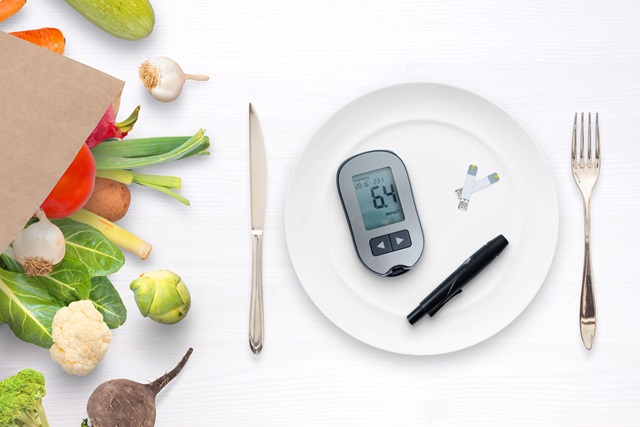Diabetic diet plan and it's complete reversal

Diabetic diet plan and it's complete reversal
This involves specific considerations to help manage blood sugar levels effectively. Here's how we do it:
Before making any dietary changes, we explain the complete physiology and conditions how diabetes can hamper health and steps to maintain and reverse the condition are explained .We provide personalized guidance based on individual needs and medical history.
1) Focus on Balanced Nutrition:: Emphasize a balanced diet that includes a variety of nutrient-rich foods such as fruits, vegetables, whole grains, lean proteins, and healthy fats. Aim to fill your plate with non-starchy vegetables and lean proteins, and choose whole grains over refined grains.
2) Control Carbohydrate Intake: Carbohydrate management is crucial for blood sugar control in diabetes. Monitor your carbohydrate intake and choose complex carbohydrates with a low glycemic index to minimize spikes in blood sugar levels. Distribute carbohydrates evenly throughout the day to help maintain stable blood sugar levels.
3) Monitor Portion Sizes: Pay attention to portion sizes to avoid overeating and to help manage blood sugar levels. Use measuring cups, food scales, or visual cues to estimate portion sizes, especially for carbohydrate-containing foods.
4) Limit Added Sugars and Processed Foods: Minimize consumption of foods and beverages high in added sugars, refined carbohydrates, and unhealthy fats. Opt for whole, minimally processed foods whenever possible to support overall health and blood sugar control.
5) Include Lean Proteins and Healthy Fats: Incorporate lean sources of protein such as tofu, beans, and lentils into your meals to help stabilize blood sugar levels and promote satiety. We also Include healthy fats from sources like avocados, nuts, seeds, and olive oil to provide essential nutrients and support heart health.
6) Advice: Advice to limit sugary beverages and opt for water, herbal tea, or other low-calorie, unsweetened drinks.
7) Meal Timing and Frequency: Meal Timing and Frequency are explained Consider the timing and frequency of meals and snacks to help maintain stable blood sugar levels throughout the day. Aim for regular meal times and avoid skipping meals to prevent fluctuations in blood sugar levels.
8) Monitor Blood Sugar Levels: Regularly monitor your blood sugar levels are recommended , we keep track of food intake, physical activity, and blood sugar readings to identify patterns and make adjustments to diet plan as needed.
9) Lifestyle Factors: In addition to dietary changes, incorporate regular physical activity, stress management techniques, adequate sleep, and other lifestyle factors to support overall diabetes management and well-being.

Key Benefits
A diabetic diet plan is crucial for managing blood sugar levels and overall health for individuals with diabetes. Here are some key benefits of following a diabetic diet plan:.
- Blood Sugar Management
- Weight Management
- Heart Health
- Improved Energy Levels
- Prevention and Management of Complications
- Better Glycemic Control